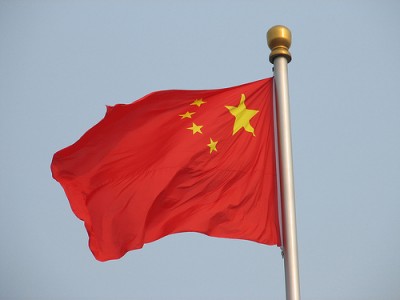As Wen Jiabao walks into the press conference room, lights focus on him and the applause accompanies his steps. Then, with his voice slightly cracking he said: “Journalist friends, this will be my last National People’s Congress press conference“.
Wen Jiabao is the sixth serving prime minister of the People’s republic of China and ranks third out of a nine member Politburo of the Communist Party of China, the real power organ of the world’s second largest economy. A native of Beichen, Tianjin City, Wen has an engineering background and holds a post-graduate degree from Beijing’s Institute of Geology.
Coming into power in 2003, it is his last address to the world in the position of Chinese prime minister. His words must be taken seriously as hidden messages are being uncovered in his speeches as though they are some kind of prophecy.
Key economic and social issues lying ahead of China have been already delivered to the public in Wen Jiabao’s opening speech to the National People’s Congress last weekend.
Lower growth forecast
China is experiencing more than a three decade long period of economic and social expansion. Its gross domestic product (GDP) increased more than 96 times since 1981 based on nominal prices fixed back in 1978. The last time the Chinese economy experienced recession was back in 1976, falling by 1.7% in nominal terms. In real, inflation adjusted, terms, Chinese GDP rose more than 21 times since 1978, when the level of the GDP was set at a 100 level.
China has become a global player with a leading economy accounting for more than a half of the world’s GDP growth in 2011. Yet, under the strict rule of the Communist party, it has developed very efficient trading rights worldwide becoming a leading exporter. However, China opened its economy only partially. Free movement of capital as well as free movement of human resources is restricted though and the exchange rate is being administratively fixed.
China has maintained its strong economic growth rates despite the economic crisis of 2009, slowing down from an average growth rate of 10.7% since 2000-2008 to 9.3% in 2009 in real terms. Now China is reaching a turning point. With global economic uncertainty it projects the real growth rate of GDP at 7.5% in 2012, according to outgoing Prime Minister Jiabao. That is almost half of the growth rate at the peak in 2007.
Rebalancing
More importantly, social issues are now more in focus for Chinese officials according to Jiabao’s address. The rebalancing of the Chinese economy is going to be in place when the new leader after Jiabao is announced in January next year, and because the economic model of export oriented growth is hitting the “Chinese Wall” of slowing global demand. Latest trade balance figures indicate a steep fall from surpluses traditionally recorded into the record high deficit last seen in 1989. The trade balance data may be distorted by New Lunar Year holidays, but the trend of slowdown becomes evident.
Now is the time to encourage consumption and the inner sources of economic growth and rebalancing will mean paying increasing attention to distribution of income within China, especially in lower and mid-income classes. Focusing on big infrastructure projects will give way to more social type of issues such as health care, education and social wealth programs, as in fact China has no existing social security in place. The gap between rich and poor in China is tremendous. The number of Chinese billionaires doubled in 2011 to 146 people according to Forbes. Rising social tensions are not welcomed by the leading Communist party and social issues are going to be a long story for some time to come for leaders in China.
Currency
The Chinese renminbi, or yuan as it is familiarly called, has been a trouble shooter on the international scene for years. China has made slow progress in freeing the currency regime to protect its competitive advantage of cheap exports.
Nevertheless, the renminbi has strengthened by more than 20% against the major currencies and the move was so obvious that Jiabao mentioned the strengthening trend in his farewell address.
The Deal is done on the foreign exchange front and the renminbi possibly reached a balanced or equilibrium level according to the Chinese leader. Allowing the currency to float more freely in both directions is possibly the next step for the Chinese authorities. When announced, a strong appreciation trend is going to be in place, as the currency traders won’t miss the opportunity to make big bets and make fat profits. The eyes of the “Big Brother” of the Communist party are going to watch it though, and a two-way fluctuation might mean that betting on a rapid appreciation could be penalized.




